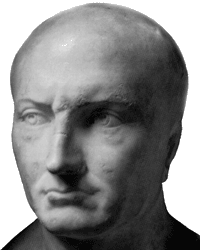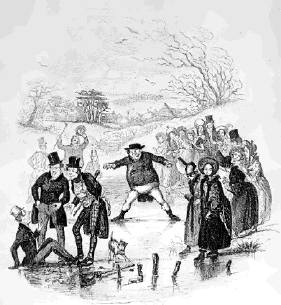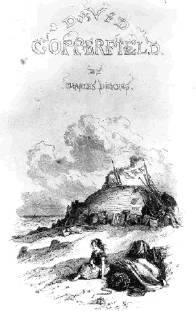|
| Charles Dickens |

Charles Dickens:
la vita e le opere
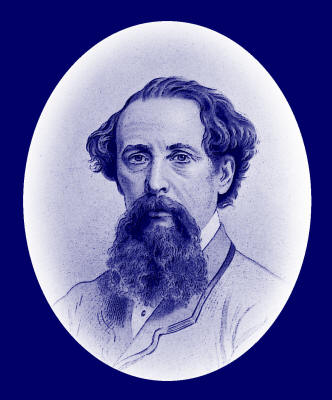
Breve biografia |
|
Charles Dickens, scritore inglese (Portsmouth, 1812; Gad's Hill, Kent, 1870) Di famiglia piccolo borghese, oppressa dai debiti (per questo motivo il padre and anche in carcere), fu costretto a interrompere gli studi e a lavorare ancora adolescente; questa precoce esperienza di umiliazione e abbandono rivivr in molti suoi romanzi. Fu commesso e impiegato, poi cronista e collaboratore di giornali umoristici finch, divent improvvisamente uno scrittore di successo con Il circolo Pickwick (1836-37). Dotato di straordinaria inventiva linguistica e narrativa, la sua popolarit aument con i romanzi successivi (Oliver Twist, 1837-38; David Copperfield, 1849-50), che uscivano a dispense mensili, legati allo scenario del primo industrialismo e ai suoi problemi sociali, ai gusti melodrammatici e ai pregiudizi moralistici della borghesia urbana, e caratterizzati da un vivo senso dello humour e da una felice mistura di tragico e comico, grottesco e quotidiano. Le sue opere successive acquistarono un tono pi pessimistico e incisivo (Casa desolata, 1852; Tempi difficili, 1854), uno spessore psicologico pi profondo (La piccola Dorrit, 1855-57; Grandi speranze, 1860-61), fino al cupo espressionismo di Il nostro comune amico (1864-65), il suo romanzo pi complesso e disperato. A dispetto della straordinaria popolarit dei suoi romanzi, la fortuna critica di Dickens stata piuttosto discontinua; riconosciuto ora il massimo narratore inglese del suo tempo e uno tra i maggiori d'ogni paese, egli cre una nuova forma letteraria, il romanzo sociale, nel quale fuse e svilupp i due grandi filoni della narrativa inglese: quello picaresco e avventuroso e quello sentimentale.
|
Cronologia delle opere |
|
Links interessanti: |
|
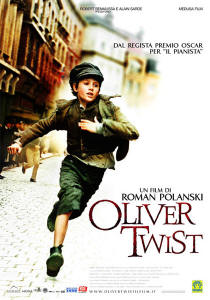
Il Circolo Pickwick(The Posthumous Papers of the Pickwick Club) Traduzione di Gianna Lonza |
|
La trama Romanzo di Charles Dickens (1837), nato dalla proposta dell'editore Chapman & Hall di fornire un testo, a puntate mensili, alle vignette sportive di Robert Seymour. Senza legarsi a una trama vera e propria, l'autore and via via arricchendo il romanzo di una fitta schiera di personaggi caricaturali e picareschi: eccentrici, ciarlatani e bricconi. Le loro avventure sono in vario modo collegate a quelle del protagonista, Mr. Pickwick, presidente di un circolo da lui fondato, e del suo domestico Sam Weller (la cui comparsa, alla quinta puntata, assicur il successo dell'opera): coppia artisticamente felicissima, in cui i caratteri opposti dell'idealista Pickwick e del realistico ed esuberante Weller danno vita a una delle massime realizzazioni dell'umorismo inglese. Al centro del romanzo il processo che Mr. Pickwick deve subire, da parte della sua padrona di casa Mrs. Bardell, per rottura di promessa di matrimonio: si tratta di un equivoco e Pickwick ne fa le spese, venendo ingiustamente condannato, ma ci serve all'autore di pretesto per descrivere il corrotto ambiente giudiziario e forense inglese, con una pittura ambientale e di costumi di eccezionale profondit artistica.
"Il Circolo Pickwick", 1836 - Illustrazione di Robert Seymour per la prima edizione - Parigi, Bibliothque Nationale
I personaggi (in ordine alfabetico):MISS ALLEN, zia di Arabella Allen Il Circolo PickwickIncipit e finale I I MEMBRI DEL CIRCOLO PICKWICK Il primo raggio di luce che dissipa l'oscurit e tramuta in fulgido chiarore le tenebre - fitte, fitte - intorno agli albori della carriera pubblica dell'immortale Pickwick, scaturisce da una riflessione sulla seguente relazione allegata agli Atti del Circolo Pickwick. E tale relazione il curatore di queste pagine si compiace in massimo grado di proporre ai lettori, a testimonianza dell'accuratezza scrupolosa, dell'indefesso studio, del ponderato discernimento che hanno contraddistinto le ricerche fra la gran massa di documenti a lui affidati. 12 maggio, 1827. Presidente Joseph Smiggers, Esquire, VPPMCP. All'unanimit viene votata la seguente risoluzione: Con illimitato compiacimento e incondizionato plauso questa Associazione prende atto della relazione di Samuel Pickwick, Esquire. PGMCP, dal titolo: Riflessioni sulle scaturigini degli stagni di Hampstead con alcune note sulla teoria dei lumaconi. Al detto Samuel Pickwick, Esquire, PGMCP, questa Associazione porge i pi sentiti ringraziamenti per quanto sopra. Questa Associazione, attenta e profondamente sensibile ai vantaggi che verranno alla scienza dalla succitata relazione - nonch dalle indefesse ricerche condotte da Samuel Pickwick, Esquire, PGMCP, a Hornsey, Highgate, Brixton, Camberwell - non pu esimersi dall'esprimere profonda soddisfazione per gli inestimabili benefici di cui, senza dubbio, si avvarranno il progresso della conoscenza e la diffusione della cultura se questo illustre dotto amplier l'ambito della propria ricerca speculativa, estender la portata dei suoi viaggi, allargher, di conseguenza, il proprio raggio di osservazione. Visto quanto sopra, questa Associazione ha attentamente valutato la proposta avanzata dal detto Samuel Pickwick, Esquire, PGMCP, e da altri tre soci del Circolo, qui di seguito indicati, per costituire una nuova sezione di Pickwickiani Uniti, denominata Inviati speciali del Circolo Pickwick. Questa Associazione autorizza e approva tale proposta. Con il presente atto viene perci costituita la sezione degli Inviati speciali del Circolo Pickwick e vengono eletti e nominati membri della stessa Samuel Pickwick, Esquire, PGMCP, Tracy Tupman, Esquire, MCP, Augustus Snodgrass, Esquire, MCP, Nathaniel Winkle, Esquire, MCP. I citati soci si impegnano a inoltrare, di volta in volta, al Circolo Pickwick, con sede a Londra, rapporti vidimati e autenticati che attestino i viaggi fatti e le ricerche svolte, che riportino i giudizi su uomini e costumi a illustrazione delle avventurose esperienze da loro vissute, nonch rapporti verbali e documenti scritti ispirati dall'ambiente naturale e dalla variet sociale. Questa Associazione si dichiara lieta di sottoscrivere il principio in base al quale alle spese di viaggio provvedono in proprio gli stessi Inviati speciali. L'Associazione stessa, inoltre, non ha obiezioni a che, ferme restando le suddette condizioni, i membri della citata sezione svolgano le loro ricerche per tutto il tempo che riterranno opportuno. Questa Associazione, nel valutare la proposta, formulata dai membri della citata sezione di Inviati speciali, di tenere a proprio carico le spese postali e di trasporto dei pacchi si compiace di accoglierla e delibera che ne sia data comunicazione agli interessati, come di fatto avviene, con il presente atto. Questa Associazione ritiene tale proposta degna delle nobili menti che l'hanno ispirata e con il presente atto significa la propria incondizionata adesione alla stessa. ... Ogni anno partecipa alla gran festa della famiglia di Mr Wardle; in questa e in altre occasioni sempre accompagnato dal fedele Sam: fra lui e il padrone esiste un affetto saldo e reciproco che nulla, tranne la morte, potr spezzare.
Incipit originale THE PICKWICKIANS The first ray of light which illumines the gloom, and converts into a dazzling brilliancy that obscurity in which the earlier history of the public career of the immortal Pickwick would appear to be involved, is derived from the perusal of the following entry in the Transactions of the Pickwick Club, which the editor of these papers feels the highest pleasure in laying before his readers, as a proof of the careful attention, indefatigable assiduity, and nice discrimination, with which his search among the multifarious documents confided to him has been conducted. 'May 12, 1827. Joseph Smiggers, Esq., P.V.P.M.P.C. [Perpetual Vice-President--Member Pickwick Club], presiding. The following resolutions unanimously agreed to:-- 'That this Association has heard read, with feelings of unmingled satisfaction, and unqualified approval, the paper communicated by Samuel Pickwick, Esq., G.C.M.P.C. [General Chairman--Member Pickwick Club], entitled "Speculations on the Source of the Hampstead Ponds, with some Observations on the Theory of Tittlebats;" and that this Association does hereby return its warmest thanks to the said Samuel Pickwick, Esq., G.C.M.P.C., for the same. 'That while this Association is deeply sensible of the advantages which must accrue to the cause of science, from the production to which they have just adverted--no less than from the unwearied researches of Samuel Pickwick, Esq., G.C.M.P.C., in Hornsey, Highgate, Brixton, and Camberwell--they cannot but entertain a lively sense of the inestimable benefits which must inevitably result from carrying the speculations of that learned man into a wider field, from extending his travels, and, consequently, enlarging his sphere of observation, to the advancement of knowledge, and the diffusion of learning. 'That, with the view just mentioned, this Association has taken into its serious consideration a proposal, emanating from the aforesaid, Samuel Pickwick, Esq., G.C.M.P.C., and three other Pickwickians hereinafter named, for forming a new branch of United Pickwickians, under the title of The Corresponding Society of the Pickwick Club. 'That the said proposal has received the sanction and approval of this Association. 'That the Corresponding Society of the Pickwick Club is therefore hereby constituted; and that Samuel Pickwick, Esq., G.C.M.P.C., Tracy Tupman, Esq., M.P.C., Augustus Snodgrass, Esq., M.P.C., and Nathaniel Winkle, Esq., M.P.C., are hereby nominated and appointed members of the same; and that they be requested to forward, from time to time, authenticated accounts of their journeys and investigations, of their observations of character and manners, and of the whole of their adventures, together with all tales and papers to which local scenery or associations may give rise, to the Pickwick Club, stationed in London. 'That this Association cordially recognises the principle of every member of the Corresponding Society defraying his own travelling expenses; and that it sees no objection whatever to the members of the said society pursuing their inquiries for any length of time they please, upon the same terms. 'That the members of the aforesaid Corresponding Society be, and are hereby informed, that their proposal to pay the postage of their letters, and the carriage of their parcels, has been deliberated upon by this Association: that this Association considers such proposal worthy of the great minds from which it emanated, and that it hereby signifies its perfect acquiescence therein.'
|
David CopperfieldTraduzione di Ugo Dttore |
|
La trama Romanzo pubblicato a puntate mensili tra il 1849 e il 1850. Considerato il capolavoro di Dickens, fu l'opera pi cara all'autore per l'elemento autobiografico delle sue pagine, in cui egli rivisse le esperienze dell'infelice fanciullezza: David, il protagonista che narra in prima persona la sua odissea, Dickens stesso. La complessa trama del romanzo serve di pretesto all'autore per esercitare un'acuta analisi critica di tutte le classi sociali del suo tempo, i cui rappresentanti sono ricreati in una galleria di personaggi indimenticabili: Mr. Murdstone, il crudele patrigno che costringe David a una misera esistenza a cui il ragazzo cerca di trovare conforto nell'amicizia di Micawber, una delle pi felici creazioni dickensiane; Betsy Trotwood, la zia bizzarra dal buon cuore; la rude e fedele governante Peggotty; l'ipocrita e disonesto Uriah Heep. Meno riusciti, perch convenzionali, il personaggio di Dora, la moglie - bambina destinata a morte prematura, e quello di Agnes, accanto alla quale David finir per trovare la serenit.
"David Copperfield", 1850 - Frontespizio della prima edizione - Londra, British Museum
David CopperfieldIncipit I VENGO AL MONDO Se io debba risultare l'eroe della mia vita, o se questo posto debba essere tenuto da un altro, lo mostreranno queste pagine. Per iniziare il racconto della mia vita con l'inizio stesso della mia esistenza, dir che sono nato (cos mi hanno detto e lo credo) un Venerd, a mezzanotte in punto. Fu notato che cominciammo, l'orologio a suonare e io a vagire, nello stesso istante. In considerazione del giorno e dell'ora della mia nascita, la balia e alcune sagge donne del vicinato che si erano vivamente interessate a me parecchi mesi prima che ci fosse una qualche possibilit che io ne fossi personalmente informato, dichiararono, primo, che ero destinato a una vita infelice; e, secondo, che avrei avuto il dono di vedere spiriti e fantasmi. Essendo queste due prerogative inevitabilmente proprie, a quanto esse credevano, di tutti gli sfortunati bamboli di ambo i sessi nati nelle tarde ore della notte di un venerd. ...
Incipit originale I AM BORN Whether I shall turn out to be the hero of my own life, or whether that station will be held by anybody else, these pages must show. To begin my life with the beginning of my life, I record that I was born (as I have been informed and believe) on a Friday, at twelve o'clock at night. It was remarked that the clock began to strike, and I began to cry, simultaneously. In consideration of the day and hour of my birth, it was declared by the nurse, and by some sage women in the neighbourhood who had taken a lively interest in me several months before there was any possibility of our becoming personally acquainted, first, that I was destined to be unlucky in life; and secondly, that I was privileged to see ghosts and spirits; both these gifts inevitably attaching, as they believed, to all unlucky infants of either gender, born towards the small hours on a Friday night.
|
Grandi speranze(Great expectations) Traduzione di Marisa Sestito |
|
Incipit Pirrip era il cognome di mio padre e Philip il mio nome di battesimo, ma la mia lingua infantile non riusc a cavarne nulla di pi lungo o pi esplicito di Pip. Sicch cominciai a chiamare me stesso Pip e Pip mi chiamarono gli altri. ...
Incipit originale My father's family name being Pirrip, and my Christian name Philip, my infant tongue could make of both names nothing longer or more explicit than Pip. So, I called myself Pip, and came to be called Pip.
|
Il nostro comune amico(Our mutual friend) Traduzione di Filippo Donini |
|
Incipit LIBRO PRIMO LA COPPA E LE LABBRA I ALL'ERTA Ai nostri giorni (non necessario indicare l'anno con maggiore esattezza) una barca d'aspetto sporco e poco rassicurante, con dentro due persone, andava sul Tamigi tra il ponte di Southwark, che di ferro, e il ponte di Londra, che di pietra, sul finire di una sera d'autunno. ...
Incipit originale ON THE LOOK OUT In these times of ours, though concerning the exact year there is no need to be precise, a boat of dirty and disreputable appearance, with two figures in it, floated on the Thames, between Southwark bridge which is of iron, and London Bridge which is of stone, as an autumn evening was closing in.
|
Tempi difficili(Hard Times) Traduzione di Gianna Lonza |
|
Incipit LIBRO PRIMO LA SEMINA I L'UNICA COSA NECESSARIA Ora quello che voglio sono Fatti. A questi ragazzi e ragazze insegnate soltanto Fatti. Solo i Fatti servono nella vita. Non piantate altro e sradicate tutto il resto. Solo con i Fatti si plasma la mente di un animale dotato di ragione; nient'altro gli torner mai utile. Con questo principio educo i miei figli, con questo principio educo questi ragazzi. Attenetevi ai Fatti, signore!. ...
Incipit originale 'NOW, what I want is, Facts. Teach these boys and girls nothing but Facts. Facts alone are wanted in life. Plant nothing else, and root out everything else. You can only form the minds of reasoning animals upon Facts: nothing else will ever be of any service to them. This is the principle on which I bring up my own children, and this is the principle on which I bring up these children. Stick to Facts, sir!'
|
Canto di Natale(A Christmas Carol) Traduzione di Maria Luisa Fehr |
|
Incipit Il fantasma di Marley Marley era morto, tanto per cominciare. Non c'era dubbio su ci: il suo atto di morte era firmato dal pastore, dal coadiutore, dall'uomo delle pompe funebri e dal capo dei piagnoni. L'aveva firmato anche Scrooge, ed il nome di Scrooge alla borsa degli scambi valeva per qualunque cosa a cui egli decidesse di metter mano. Il vecchio Marley era morto come il chiodo di un uscio. ...
Incipit originale Marley's Ghost Marley was dead: to begin with. There is no doubt whatever about that. The register of his burial was signed by the clergyman, the clerk, the undertaker, and the chief mourner. Scrooge signed it. And Scrooge's name was good upon 'Change, for anything he chose to put his hand to. Old Marley was as dead as a door-nail.
|
Oliver Twist |
|
Incipit OVE SI NARRA DEL LUOGO IN CUI NACQUE OLIVER TWIST E DELLE CIRCOSTANZE CONCERNENTI LA SUA NASCITA Fra i vari edifici pubblici di una certa citt, che per diverse ragioni sar prudente astenersi dal menzionare, e alla quale non attribuir nessun nome fittizio, ce n' uno da sempre comune alla maggior parte di esse, grandi o piccole che siano: vale a dire un ricovero per mendicanti. L nacque, in un giorno e anno che non mi preoccuper di precisare, visto che allo stato la cosa non riveste alcuna importanza per il lettore, il rappresentante del genere umano il cui nome precede l'inizio di questo capitolo. ...
Incipit originale TREATS OF THE PLACE WHERE OLIVER TWIST WAS BORN AND OF THE CIRCUMSTANCES ATTENDING HIS BIRTH Among other public buildings in a certain town, which for many reasons it will be prudent to refrain from mentioning, and to which I will assign no fictitious name, there is one anciently common to most towns, great or small: to wit, a workhouse; and in this workhouse was born; on a day and date which I need not trouble myself to repeat, inasmuch as it can be of no possible consequence to the reader, in this stage of the business at all events; the item of mortality whose name is prefixed to the head of this chapter.
|
Impressioni dall'Italia (Impressioni d'Italia)(Pictures from Italy) Romanzo |
|
Incipit Se i lettori di questo volume saranno cos benevoli da assumere come propri i punti di vista dell'autore sui svariati luoghi oggetto delle sue reminiscenze, forse potranno visitarle, con l'immaginazione, in modo pi gradevole e con una comprensione maggiore di quella che potrebbero aspettarsi. I numerosi libri che sono stati scritti sull'Italia, offrono molti strumenti per studiare la storia e le intricate vicende di questo interessante paese. Io non ho utilizzato che una piccola parte di questa messe di informazioni; per tutto ci che ho scritto ho fatto ricorso a quanto ho conservato in me, un archivio facilmente accessibile che render disponibile ai miei lettori. ...
Incipit originale THE READER'S PASSPORT If the readers of this volume will be so kind as to take their credentials for the different places which are the subject of its author's reminiscences, from the Author himself, perhaps they may visit them, in fancy, the more agreeably, and with a better understanding of what they are to expect. Many books have been written upon Italy, affording many means of studying the history of that interesting country, and the innumerable associations entwined about it. I make but little reference to that stock of information; not at all regarding it as a necessary consequence of my having had recourse to the storehouse for my own benefit, that I should reproduce its easily accessible contents before the eyes of my readers.
|
Una storia tra due citt (Le due citt)(A tale of two Cities) Romanzo |
|
Incipit Erano i giorni migliori, erano i giorni peggiori, era un'epoca di saggezza, era un'epoca di follia, era tempo di fede, era tempo di incredulit, era una stagione di luce, era una stagione buia, era la primavera della speranza, era l'inverno della disperazione, ogni futuro era di fronte a noi, e futuro non avevamo, diretti verso il paradiso, eravamo incamminati nella direzione opposta. ...
Incipit originale The Period It was the best of times, it was the worst of times, it was the age of wisdom, it was the age of foolishness, it was the epoch of belief, it was the epoch of incredulity, it was the season of Light, it was the season of Darkness, it was the spring of hope, it was the winter of despair, we had everything before us, we had nothing before us, we were all going direct to Heaven, we were all going direct the other way...
|
Dombey e figlioDombey and son |
|
Incipit originale Dombey and Son Dombey sat in the corner of the darkened room in the great arm-chair by the bedside, and Son lay tucked up warm in a little basket bedstead, carefully disposed on a low settee immediately in front of the fire and close to it, as if his constitution were analogous to that of a muffin, and it was essential to toast him brown while he was very new. Dombey was about eight-and-forty years of age. Son about eight-and-forty minutes. Dombey was rather bald, rather red, and though a handsome well-made man, too stern and pompous in appearance, to be prepossessing. Son was very bald, and very red, and though (of course) an undeniably fine infant, somewhat crushed and spotty in his general effect, as yet. On the brow of Dombey, Time and his brother Care had set some marks, as on a tree that was to come down in good time - remorseless twins they are for striding through their human forests, notching as they go - while the countenance of Son was crossed with a thousand little creases, which the same deceitful Time would take delight in smoothing out and wearing away with the flat part of his scythe, as a preparation of the surface for his deeper operations.
|
La piccola DorritLittle Dorrit |
|
Incipit originale Sun and Shadow Thirty years ago, Marseilles lay burning in the sun, one day. A blazing sun upon a fierce August day was no greater rarity in southern France then, than at any other time, before or since. Everything in Marseilles, and about Marseilles, had stared at the fervid sky, and been stared at in return, until a staring habit had become universal there. Strangers were stared out of countenance by staring white houses, staring white walls, staring white streets, staring tracts of arid road, staring hills from which verdure was burnt away. The only things to be seen not fixedly staring and glaring were the vines drooping under their load of grapes. These did occasionally wink a little, as the hot air barely moved their faint leaves.
|
Martin ChuzzlewitLife and adventures of Martin Chuzzlewit |
|
Incipit originale INTRODUCTORY, CONCERNING THE PEDIGREE OF THE CHUZZLEWIT FAMILY As no lady or gentleman, with any claims to polite breeding, can possibly sympathize with the Chuzzlewit Family without being first assured of the extreme antiquity of the race, it is a great satisfaction to know that it undoubtedly descended in a direct line from Adam and Eve; and was, in the very earliest times, closely connected with the agricultural interest. If it should ever be urged by grudging and malicious persons, that a Chuzzlewit, in any period of the family history, displayed an overweening amount of family pride, surely the weakness will be considered not only pardonable but laudable, when the immense superiority of the house to the rest of mankind, in respect of this its ancient origin, is taken into account.
|
Nicholas Nickleby |
|
Incipit originale Introduces all the Rest There once lived, in a sequestered part of the county of Devonshire, one Mr Godfrey Nickleby: a worthy gentleman, who, taking it into his head rather late in life that he must get married, and not being young enough or rich enough to aspire to the hand of a lady of fortune, had wedded an old flame out of mere attachment, who in her turn had taken him for the same reason. Thus two people who cannot afford to play cards for money, sometimes sit down to a quiet game for love.
|
|
Altre monografie:
Bibliografia
|
Questa pagina stata aggiornata il 06/08/10
|
Puoi contattarmi su Skype: |
|
Pagine principali: |
